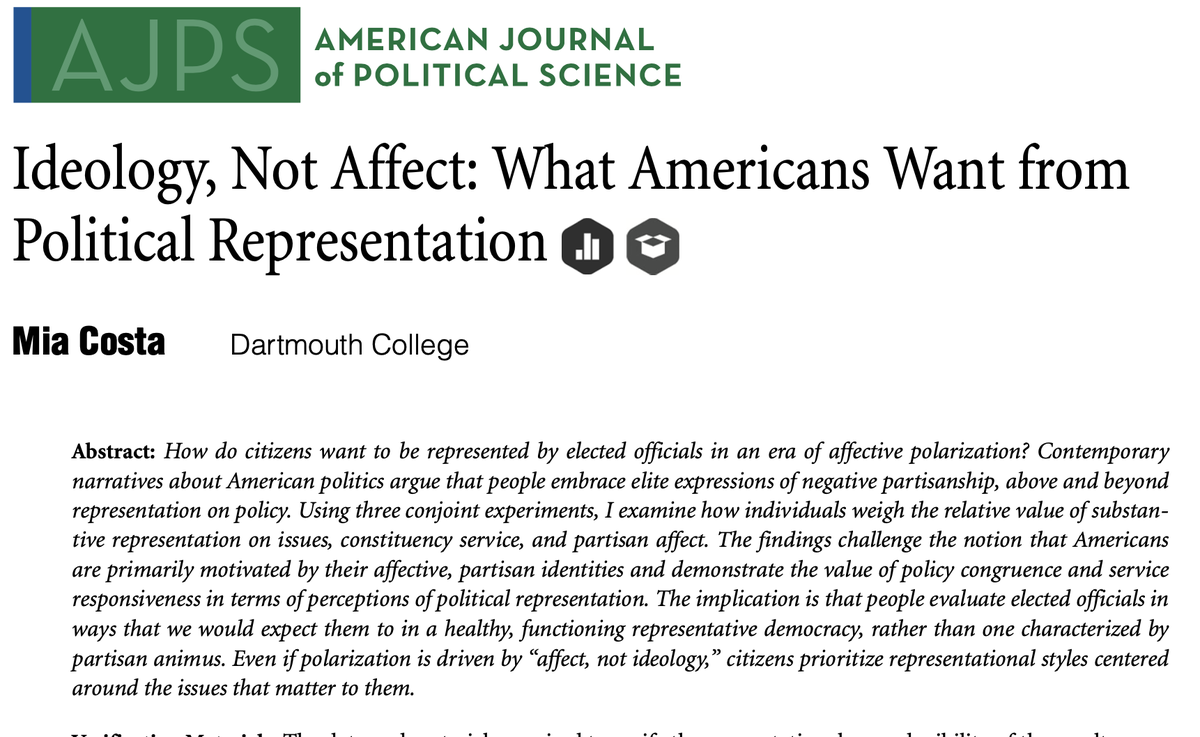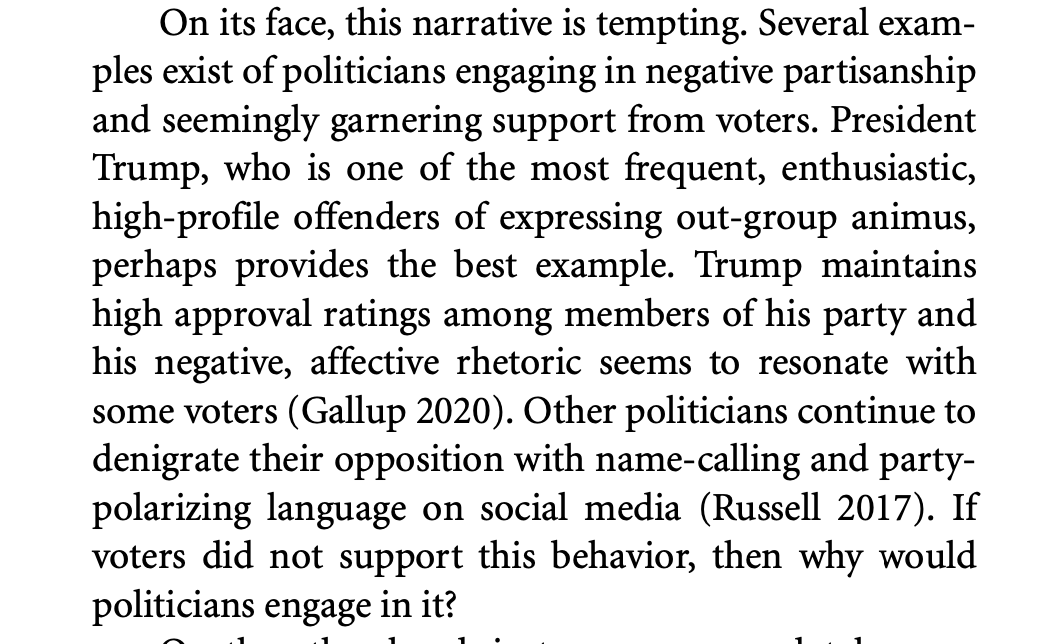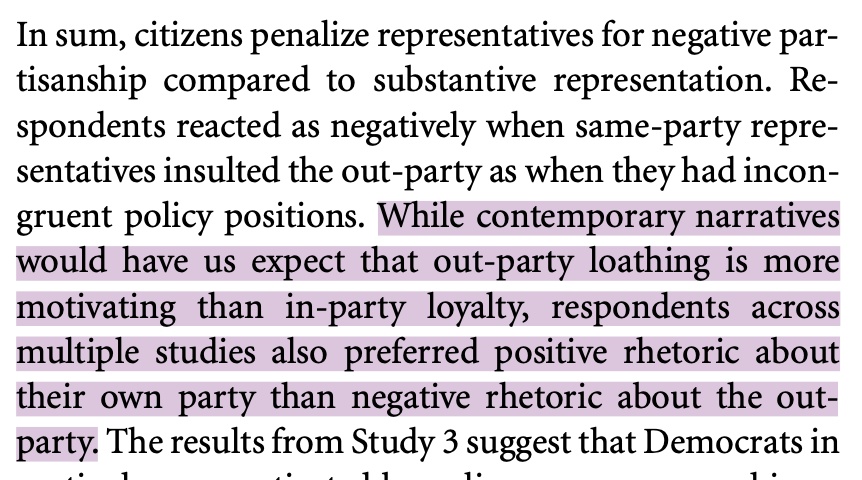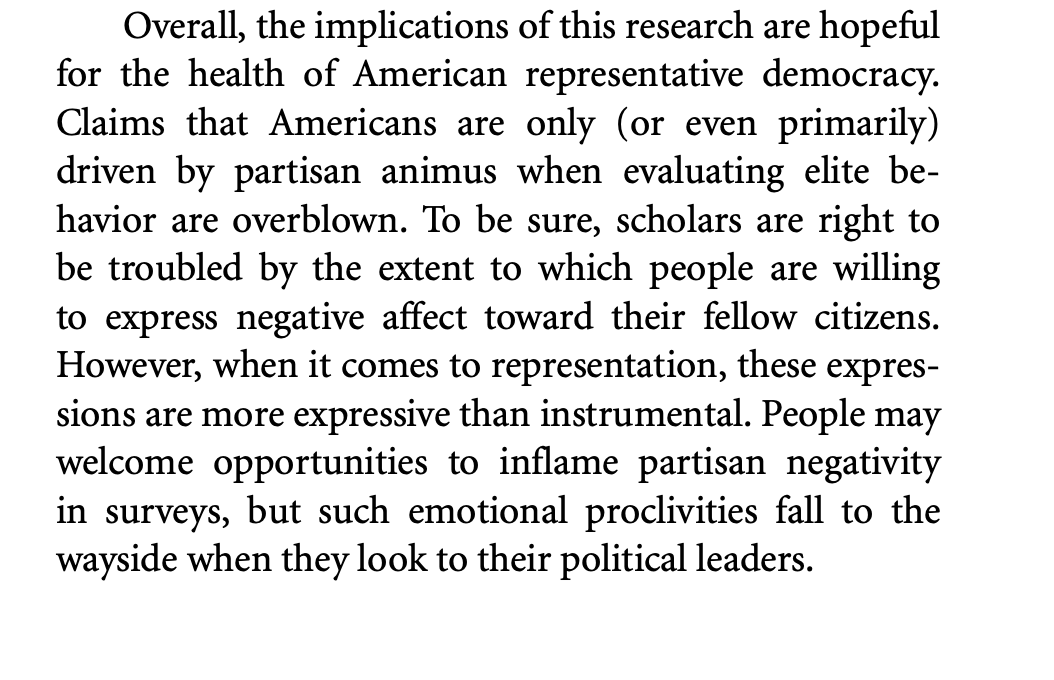Excited to share: In a new article now online @AJPS_Editor, I show that concerns about affective polarization, in terms of what it means for perceptions of elite behavior, may be overblown. People *do not want* politicians to denigrate the other party. 1/ https://onlinelibrary.wiley.com/doi/full/10.1111/ajps.12571
Pioneering work has shown that polarization is driven by affect, not ideology. And some have thought that increasing loathing bw partisans leads voters to desire reps who inflame partisan animus. On it's face, this narrative is tempting. But...
..Across 3 conjoint experiments, I find this isn't the case. Repeatedly, out-party affect is penalized, especially compared to policy congruence. This is true even for voters evaluating co-partisan politicians attacking the other party...
In-party cheerleading is also evaluated more favorably than out-party animus, which was not expected given decreasing trends in in-party loyalty.

 Read on Twitter
Read on Twitter









